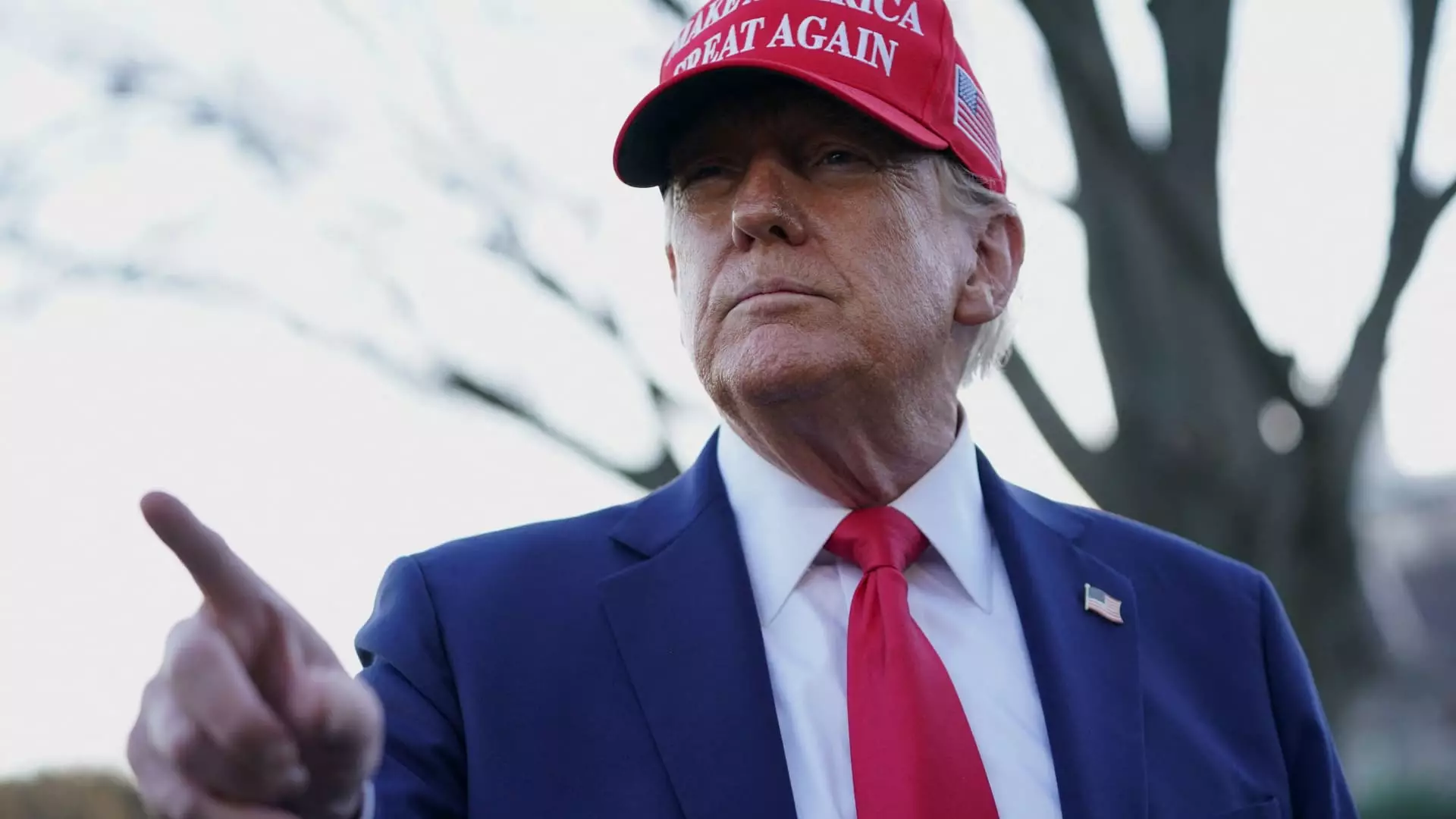In a surprising move that has sent political ripples through the financial sector, the Trump Organization has launched a lawsuit against Capital One. The suit asserts that Capital One unjustly closed over 300 bank accounts belonging to the Trump entities following the January 6 riot at the U.S. Capitol. This legal action not only highlights the complexities of banking and political affiliations but also raises substantial questions about corporate responsibility and the impacts of political rhetoric in business decisions. The claim is both bizarre and illuminating—can a bank’s decision to terminate accounts be influenced by political sentiment?
Within the suit, the Trump Organization states that Capital One’s actions were motivated by a “woke” ideology, supposedly pressing the bank to distance itself from President Trump and his views. This accusation feeds into the larger narrative of hyper-partisanship that saturates our political landscape today. It is troubling that institutions, including banks, might feel pressured to align with the prevailing political climate, effectively using corporate policy as a means of censorship. The Trump Organization’s allegations may resonate with many who feel marginalized by political bias, irrespective of one’s stance on Trump or his policies.
The Implications of “Debanking” Practices
The central premise of the lawsuit—that Capital One “de-banked” the plaintiffs—sheds light on a controversial practice that has gained traction in recent years. Businesses and organizations faced with adverse political opinions often find themselves at the mercy of financial institutions that may prioritize social perception over client relationships. This trend raises profound ethical questions: is it right for banks to integrate political considerations into their decision-making processes? Should financial institutions enforce a form of censorship through account closures based on clients’ political views or affiliations?
The lawsuit describes the devastating financial consequences the Trump Organization faces as a result of the alleged account closures, citing “millions of dollars” in damages. Beyond the numerical value, the impact of such an action can be profound. The ability to access capital is critical for any business, and sudden barriers can hinder operations and stifle growth, especially for a company already under scrutiny due to its political ties.
Is This a Sign of a Policed Marketplace?
This legal challenge opens a wider dialogue on the potential policing of the marketplace based on personal beliefs and political alignment. Critics argue that such actions reflect a broader trend where dissenting voices in politics, particularly those on the right, face systemic barriers from various institutions. Eric Trump’s commentary further emphasizes how he sees this as an attack on free speech and free enterprise, sentiments shared by many who fear that the ideological stranglehold on businesses undermines the American ethos.
In an age where political identities shape social and economic behaviors, the intertwining of finance and political allegiance raises questions that transcend the immediate case between the Trump Organization and Capital One. What happens when financial services become tools for political maneuvering? If one’s business model relies heavily on prevailing political winds, then the implications for freedom of expression—particularly dissenting opinions—could be dire. As conversations about political bias in the workplace skyrocket, the need for clear definitions and boundaries around corporate governance and political ideology becomes critically important. The events surrounding this lawsuit call into question whether financial institutions should be arenas for popular sentiment or remain neutral facilitators of commerce.


Leave a Reply